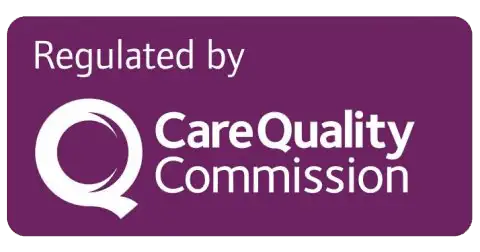In recent years, there’s been growing recognition of the relationship between attention deficit hyperactivity disorder (ADHD) and addiction, especially among adults. However, this connection is still not widely discussed and is misunderstood, causing delays in recognising and diagnosing and creating missed opportunities for treatment.
At The Wellbourne Clinic, while we do not specialise in treating standalone mental health conditions such as ADHD, we are deeply aware of how these co-occurring challenges impact addiction and recovery. That’s why we take a holistic, person-centred approach, recognising the role mental health plays in substance use and tailoring support accordingly.

Understanding ADHD in Adults
ADHD is commonly associated with childhood, but research shows it frequently continues and persists into adulthood, with people perhaps not even realising they have it. Symptoms in adults can look different:
-
- Difficulty focusing or following through on tasks
- Impulsivity or poor decision-making
- Restlessness or agitation
- Disorganisation
- Emotional dysregulation
These symptoms can easily be mistaken for character flaws or lifestyle issues, especially when masked by substance use. As a result, many adults may turn to drugs or alcohol—intentionally or unconsciously—to manage the effects of undiagnosed ADHD.
Learn more about ADHD in Adults here.
Why ADHD and Addiction Often Co-Exist
The link between ADHD and substance use is extensive. Research shows adults with ADHD are much more likely to have an addiction than adults without this condition.
Here are a few key reasons why:
-
- Self-medication: Stimulants like cocaine or depressants like alcohol may temporarily “balance” emotional highs and lows or calm racing thoughts.
- Impulse control: ADHD is closely linked to impulsivity—one of the core drivers behind compulsive substance use.
- Low self-esteem: Adults who have struggled for years without understanding why may experience shame, anxiety or depression—all of which can increase vulnerability to addiction.
- Delayed diagnosis: Without a clear ADHD diagnosis, treatment focuses solely on addiction—leaving an important part of the puzzle unaddressed.
The Problem With Overlooking ADHD in Addiction Treatment
When ADHD goes unrecognised, addiction treatment can feel frustrating or ineffective for the person. They may struggle to engage in structured programmes, follow routines or manage emotional triggers—all of which can lead to relapse.
This doesn’t mean treatment can’t work—but it does mean that context matters. When support is trauma-informed, ADHD-aware and compassionate, people feel seen and understood.
The Wellbourne Clinic Approach
At The Wellbourne Clinic, we believe in treating the whole person, not just the addiction.
While we are not a mental health clinic and do not offer standalone ADHD diagnosis or psychiatric treatment, we understand the important role these underlying factors play. Our team works to:
-
- Identify co-occurring challenges that may be affecting recovery
- Adapt treatment plans to support focus, structure and emotional regulation
- Collaborate with external specialists when a formal diagnosis or psychiatric input is needed
- Provide non-judgmental, evidence-informed care that takes the full person into account
We’ve seen first-hand how empowering it can be when someone begins to understand why they behave the way they do—and learns new ways to manage that, without relying on substances.
Moving Forward: Awareness is the First Step
If you or someone you care about is struggling with addiction—and also experiences symptoms that could be related to ADHD—don’t dismiss the connection. Understanding both can be a game-changer in treatment and recovery.
At The Wellbourne Clinic, we’re here to support your journey with empathy, professionalism and care tailored to your unique needs.









